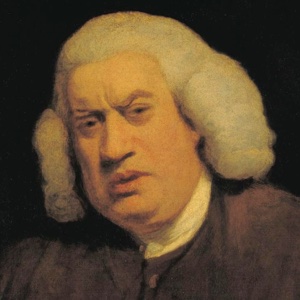
Samuel Johnson (1709 – 1784) was an English critic, biographer, essayist, poet, lexicographer, playwright, and editor. Despite ill health and periodic financial difficulties, Johnson was a supportive friend to others in their time of need. He was first hired as a writer in 1737 for The Gentleman’s Magazine in London. He later wrote numerous short essays and fiction works under the names of The Rambler and The Idler. The first work published under his own name was the poem The Vanity of Human Wishes (1749). Johnson’s famous A Dictionary of the English Language (1755) was a major scholarly achievement, known for its detail, complexity, and use of quotations to illustrate definitions.

Quotes by Samuel Johnson…
Let observation with extensive view,
Survey mankind, from China to Peru;
Remark each anxious toil, each eager strife,
And watch the busy scenes of crowded life;
Then say how hope and fear, desire and hate,
O’erspread with snares the clouded maze of fate,
Where wav’ring man, betray’d by vent’rous pride
To tread the dreary paths without a guide,
As treach’rous phantoms in the mist delude,
Shuns fancied ills, or chases airy good.
How rarely reason guides the stubborn choice,
Rules the bold hand, or prompts the suppliant voice,
How nations sink, by darling schemes oppress’d,
When vengeance listens to the fool’s request.
Fate wings with ev’ry wish th’ afflictive dart,
Each gift of nature, and each grace of art,
With fatal heat impetuous courage glows,
With fatal sweetness elocution flows,
Impeachment stops the speaker’s pow’rful breath,
And restless fire precipitates on death.
Samuel Johnson (1709 – 1784), Excerpted from The Vanity of Human Wishes
Great works are performed not by strength, but by perseverance.
I deny the lawfulness of telling a lie to a sick man for fear of alarming him; you have no business with consequences, you are to tell the truth.
